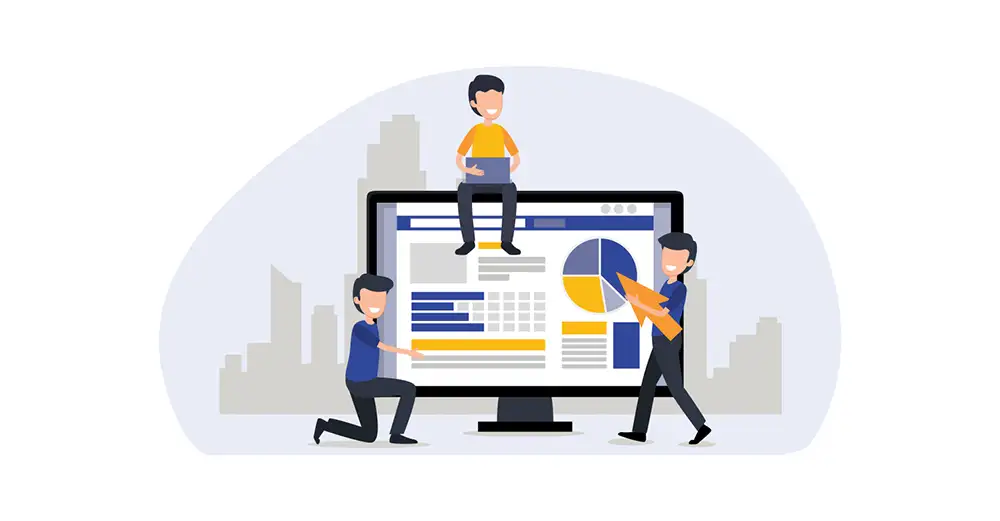 Asim Nath Dubey
Sep 16, 2025
Asim Nath Dubey
Sep 16, 2025

Learning Power BI boosts career opportunities in 2025 by improving employability, income potential, and mobility across industries. In today’s data-driven world, businesses rely on smart analytics tools to make accurate decisions, and Microsoft Power BI has become a leader in business intelligence (BI). With global enterprises and startups prioritizing data insights, tools like Power BI are no longer optional—they are career essentials.
Power BI is widely adopted because it is user-friendly, integrates with multiple data sources, and provides real-time insights. In 2025, demand for skilled Power BI professionals around the world is increasing, as organizations need talent that can transform raw data into strategic actions. Learning Power BI enhances your career by opening new job roles, offering certification benefits, and aligning your skills with the latest business trends.
Let’s explore the top reasons why learning Power BI in 2025 could be the smartest move for your career.
Learning Power BI in 2025 can significantly boost your career by opening high-demand roles in data analytics and business intelligence. It equips professionals with skills to transform raw data into actionable insights, making them valuable across industries. With strong integration of AI, automation, and cloud technologies, Power BI ensures future-ready career growth. From better salaries to global opportunities, the benefits of learning Power BI are more relevant than ever. The following are the Benefits of Learning Power BI for Your Career in 2025.
High Demand for Power BI Skills in 2025
Expanding Power BI Career Opportunities in 2025
Competitive Advantage with Power BI Certification Benefits
Practical Applications Across Industries
Power BI Advantages for Professionals and Decision-Makers
Strong Integration with AI and Automation Trends
Cost-Effective and Easy to Learn
High Salary Potential in BI Job Roles
Future-Proof Career in a Data-Driven Economy
Let's get into each of these steps in detail.
One of the biggest benefits of learning Power BI is the growing demand for professionals skilled in data visualization and analytics. According to job market research, nearly 1 in 3 data analyst job postings list Power BI as a required skill, making it one of the top tools for BI careers. The global business intelligence market is also projected to reach USD 33.3 billion by 2025 (CAGR 7.6%), ensuring long-term career growth. With industries like finance, healthcare, retail, IT, and consulting increasingly relying on data analytics, Power BI career opportunities in 2025 will continue to expand.
Organizations prefer Power BI because it integrates seamlessly with Microsoft tools like Excel, Azure, and Teams. This means that professionals trained in Power BI are highly employable and versatile across multiple industries.
Read Also : How To Become A Power BI Professional
Learning Power BI gives professionals access to diverse job roles such as:
These Power BI job roles not only offer global opportunities but also come with attractive salaries. For instance, a Power BI Developer in the U.S. earns on average around $110,000 per year, with senior professionals crossing $140,000. A Business Intelligence Analyst typically makes about $99,000 annually, while consultants and senior BI experts can earn well over $120,000 depending on industry and location. Whether you are a student entering analytics or an experienced professional looking to upskill, Power BI ensures rapid career growth and strong earning potential in 2025.
Read Also : Top Job Roles You Can Pursue After Completing A Power BI Course
Power BI certifications validate your expertise and set you apart from other candidates in the job market. Certification benefits include:
In fact, research shows that certified data analytics professionals earn 10–25% more on average than non-certified peers, making Power BI certification a smart investment for career growth. In 2025, as companies prioritize certified professionals for critical analytics projects, investing in Power BI certification is a proven way to future-proof your career.In 2025, as companies prioritize certified professionals for critical analytics projects, investing in Power BI certification is a proven way to future-proof your career.
One of the strongest reasons why you should do data analytics with a Power BI tool is its universal application. Power BI isn’t just a tool for dashboards—it is widely adopted across industries with measurable impact. Below are expanded, data-supported examples of how Power BI is used in different sectors, showing its practicality and how having Power BI skills gives you versatility and mobility.
These numbers show that having Power BI skills means you’re likely to find opportunities in almost any sector.
Finance & Banking
Healthcare
Retail & E-Commerce
Manufacturing & Supply Chain
IT / Technology, Operations, & Service Management
Other Sectors: Government, Insurance, Construction
Power BI is designed not only for analysts but also for managers and executives. Its intuitive dashboards help professionals at all levels make faster, data-backed decisions. Some advantages for professionals include:
By learning Power BI, you position yourself as someone who can empower organizations with data-driven strategies—a key skill for leadership roles.
In 2025, AI and automation are reshaping how businesses use data. Power BI now integrates with AI-driven insights, natural language queries, and predictive analytics. This means professionals who learn Power BI gain access to cutting-edge features that make them future-ready.
Businesses adopting automation need analysts and managers who understand how to use these features effectively. By learning Power BI, you ensure your skills remain relevant in the AI-driven workplace.
Compared to other BI tools, Power BI is cost-effective and beginner-friendly. Microsoft offers free versions with strong capabilities, making it accessible for students and professionals alike. The learning curve is smoother than many competing tools, which means you can start applying your knowledge quickly in real-world projects.
This accessibility is one of the key reasons why you should do data analytics with Power BI—it provides maximum career value with minimal upfront cost.
Another benefit of learning Power BI is its direct impact on earning potential. BI job roles consistently rank among the highest-paying IT and business positions. For example, a Power BI Developer in the U.S. earns an average salary of around $110,000 per year, with experienced professionals crossing $120,000. A Business Intelligence Analyst typically makes about $100,000 annually, while a Power BI Consultant earns around $107,000 on average, with senior consultants exceeding $120,000 depending on location and experience.
These numbers highlight how professionals with Power BI expertise earn significantly more than peers without BI skills. With more companies competing for skilled talent in 2025, Power BI professionals can expect continued salary growth and better job security.
As businesses increasingly depend on data analytics, Power BI ensures that your skills remain relevant for years to come. By 2025, companies that fail to adopt BI tools risk losing competitiveness. Professionals who master Power BI gain long-term career stability in an evolving digital economy.
This makes learning Power BI not just an immediate career boost but also a safeguard for the future.
Read Also : Power BI Vs Excel: Which One Should You Learn
In 2025, learning Power BI offers undeniable career advantages. From expanding job opportunities to enhancing decision-making capabilities, the benefits of learning Power BI are both immediate and long-term. Whether you’re a student, a business analyst, or a manager, Power BI equips you with the tools to succeed in a data-driven world.
By investing in Power BI training and certification, you not only increase your employability but also align yourself with global business trends, including AI and automation. The message is clear: Power BI is more than just a skill-it is a career accelerator.
Start learning Power BI today, and position yourself as a future-ready professional in the world of data analytics.
1. Why should I learn Power BI in 2025?
Learning Power BI boosts career opportunities, increases salary potential, and helps professionals stay relevant in the growing field of data analytics.
2. What are the top Power BI career opportunities in 2025?
Job roles include Power BI Developer, Business Intelligence Analyst, Data Analyst, and Power BI Consultant across multiple industries.
3. Is Power BI certification worth it?
Yes. Power BI certification benefits include higher employability, stronger credibility, and access to high-paying job roles in analytics.
4. How difficult is it to learn Power BI?
Power BI is beginner-friendly with intuitive dashboards and resources. With consistent practice, professionals from both technical and non-technical backgrounds can master it.
5. What industries use Power BI the most?
Power BI is widely used in finance, healthcare, IT, retail, consulting, and government sectors for data-driven decision-making.

Asim Nath is an Accounting and Microsoft Office trainer at Edoxi Training Institute. He has over 13 years of training experience and has successfully trained more than 3000 professionals in Accounting and Microsoft Office applications. Asim’s specialisations include Financial Accounting, Tally, Zoho and Quickbooks. His background in financial accounting adds valuable insights to business presentation training.
Asim is an expert in MS Office, including PowerPoint, Excel, and Power BI, positioning him as a well-rounded specialist in the Microsoft Suite. Asim employs a practical, business-focused teaching methodology. His one-to-one training approach ensures each student receives personalized attention. He emphasizes real-world applications, helping professionals create impactful business presentations.